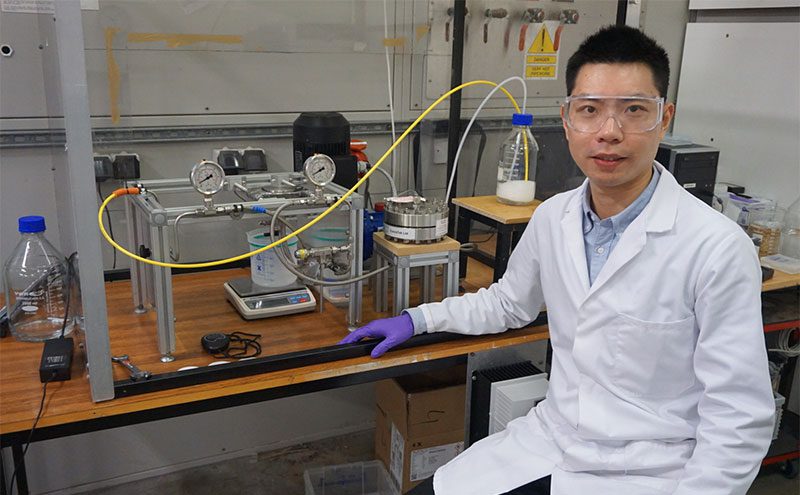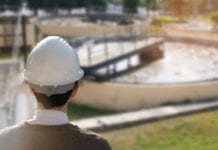
A method of providing fluoride-free water to vulnerable communities in East Africa has received a major funding award.
Dr Junjie Shen from the University of Bath’s Department of Chemical Engineering has been awarded a five-year Engineering for Development Research Fellowship from the Royal Academy of Engineering. His project ‘Safe Drinking Water using Capacitive Deionization for East Africa’ will work on developing technology capable of removing fluoride from water with minimal energy consumption.
Capacitive Deionization (CDI) is an emerging technology used to de-ionize – the process of removing fluoride from water – by applying a low DC voltage (about 1.2 V) to a water source, over two electrodes. Water passes between the electrodes and the charged ions are adsorbed by the oppositely charged electrodes, resulting in pure water free from fluorides.
Dr Shen is intending for this technology to be used as a Point-of-Use (POU) water treatment solution in developing countries, treating water directly from natural sources such as rivers, wells and boreholes.
This CDI technology is seemingly highly modular and scalable, making it suitable to be carried considerable distances to the nearest water source. It is envisaged it will cost £10,000 for a community-scale system capable of supplying clean water for around 200 people. This equates to an estimated water price of less than £3 per cubic meter, 20 times cheaper than the cost of bottled water in a local market.
CDI is also a sustainable and environmentally-friendly solution for water treatment due to its very low energy consumption, no use of chemicals and its ability to regenerate its electrodes by reversing or removing the voltage. This means such technology should provide a long term solution to treating water in the developing world.
Fluorine is abundant in the Earth’s crust as a result of volcanic activity and fumarolic gases. Fluoride is naturally released into water by the dissolution of fluoride-containing rocks and soils.
The East African Rift, as an active volcanic zone, is a typically high-fluoride area and excessive fluoride in drinking water causes large-scale health problems in East Africa such as crippling bone disease, skeletal fluorosis. In Tanzania, a study found that in communities where fluoride-rich groundwater is used as drinking water, more than 90 per cent of children had dental fluorosis and over 25 per cent of children had skeletal deformities.
In many parts of East Africa, urban water infrastructures are either not available or unreliable in remote villages. Current defluoridation technologies applied in East Africa – including adsorption and membrane separation – are largely ineffective due to their insufficient capacity to remove fluorides as well as the associated costs preventing greater use of these technologies.
A Research Fellow in the University of Bath’s Department of Chemical Engineering, in particular in the Centre for Advanced Separations Engineering (CASE) and Water Innovation and Research Centre (WIRC@Bath), Dr Junjie Shen, said: “Drinking water decontamination in the developing countries has always been a scientific challenge due to the complexity of water chemistry and various drawbacks of current technologies. My research will look for a new approach to produce safe drinking water in a cost-effective and environmental-friendly manner. This will advance our current knowledge and create ground for future studies.”
Director in the Centre for Advanced Separations Engineering (CASE), Professor Semali Perera, commented: “This new technology has the potential to directly benefit a large population of people living in rural and remote areas in East Africa. Access to safe water means opportunity for improved health and the ability to prevent disease.
Access to safe water also gives families more time to pursue education and work opportunities that will help break the cycle of poverty in these areas. He is a core member of CASE and we are very proud of his work.”
As part of this project, Dr Shen hopes to conduct a pilot study in Tanzania whereby he will be able to test the technology in the field, working in collaboration with colleagues from University of Dar es Salaam.







